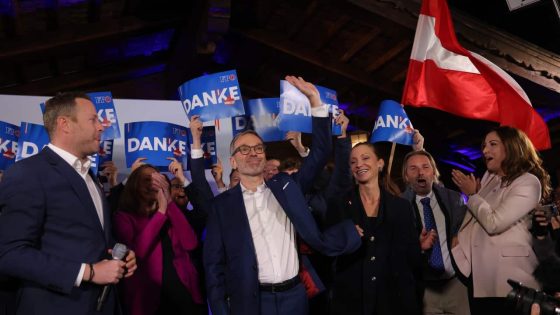Austria’s far-right Freedom Party (FPO) secured a historic victory in Sunday’s national election. However, its path to governing remains uncertain.
The background: According to near-complete results, the FPO finished ahead of the governing conservatives, securing 28.8 per cent of the vote and surpassing the ruling Austrian People’s Party (OVP), which came second with 26.3 per cent of the vote.
The vote margin was slightly larger than predicted by final polls.
The FPO, which is led by Herbert Kickl, 55, benefited from Austrians’ frustration over the cost of living, immigration, climate change, strict COVID-19 handling, and the war in Ukraine.
Known for its Euroscepticism and anti-Islam stance, the FPO advocates for the “remigration” of uninvited foreigners, opposes sanctions against Russia, and is highly critical of Western military aid to Ukraine.
An FPO victory would make Austria the latest , following similar gains in the Netherlands, France, .
Head of Austria’s far-right Freedom Party Herbert Kickl celebrates after parliamentary elections. Source: AAP, EPA / Filip Singer
The key quote: “We’ve made Austrian history because it’s the first time the Freedom Party is Number 1 in a parliamentary election, and you have to think how far we’ve come.” — FPO leader Herbert Kickl.
What else to know: To form a government, Kickl would need a coalition partner to secure a majority in the lower house of parliament. However, this seems unlikely, as his provocative and polarising image, as well as the party’s Nazi origins — its first leaders were former Nazis — has made him unpopular with other party leaders.
Current Chancellor Karl Nehammer of the OVP, who like the FPO supports tougher immigration rules and tax cuts, is the only leader who has left the door open to a coalition with the far-right party—but without Kickl.
If Kickl fails to persuade another party to ally with him, it could dash the FPO’s hopes of forming a government and pave the way for a coalition of more moderate parties.
Source Agencies


